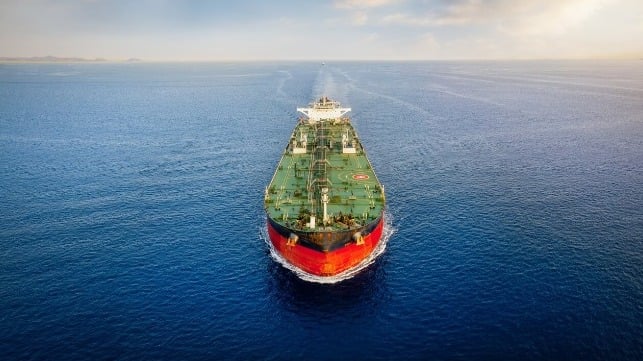How Will the Next Round of Sanctions on Russia Affect Shipping?

Two rounds of additional sanctions against Russia are in the course of preparation, and could have a substantial effect on "shadow fleet" shipments from Russian oil ports to overseas customers.
A draft bill proposed by Senator Lindsey Graham (R-South Carolina), Chairman of the Senate Budget Committee, seeks to impose 500% tariffs on countries that buy Russian energy, possibly with some exemptions for those nations still buying Russian energy but providing assistance to Ukraine. India and China buy roughly 70 percent of Russian energy exports, and hence are potentially the most likely countries to be impacted, should the bill pass.
Democratic Senator Richard Blumenthal (D-Connecticut), who is a co-sponsor of the proposed Sanctioning Russia Act of 2025 measure, visited President Volodymyr Zelenskyy with Senator Graham on May 30. After their meeting, both senators expressed an increased determination to proceed with the measure. The Senate bill has 82 bipartisan signatures at the last count, more than is needed to protect it from Presidential veto. A companion bill circulating in draft in the House of Representatives is also attracting strong support.
On the other side of the Atlantic, the European Commission is drafting its 18th round of sanctions against Russia, which EU President Ursula Von der Leyen has said will be implemented alongside increased US sanctions, adding that “pressure works, as the Kremlin understands nothing else”. The detail of the 18th round of sanctions is being discussed in the European Council this week.
These initiatives face obstacles. In the United States, President Trump is seeking to delay and shape the legislation, and maintains that his own foreign policy initiatives should take precedence. In Europe, both Hungary and Slovakia will seek to derail the 18th sanctions round, though neither country has successfully blocked previous rounds of sanctions. European imposition of sanctions has been slow, strong on rhetoric but weak in terms of results. But the latest round in draft would be significantly more effective, as it would ban all new EU oil and gas contracts and existing short-term spot contracts with Russian suppliers by the end of 2025, and ban all remaining imports by the end of 2027.
But of particular significance in the EU’s 18th sanctions round proposal are measures to tighten and lower the Russian oil price cap and to permanently close down oil pipeline infrastructure linking Russia with its former customers in Central and Western Europe. The 18th round will also tighten sanctions listings related to “shadow fleet” oil tankers, which will affect both Russia and Iran as suppliers, and China and India in particular as customers.
In the U.S., the introduction of the sanctions bill in Congress appears inspired by the Trump administration’s mild response to Russia’s evasion of peace talks, which has not yet triggered a policy reaction from the White House (beyond strongly-worded statements). Congressional concerns in this regard may be reinforced by President Trump’s statement regarding the Act that “I'll use it if it's necessary.”
The 500% tariffs proposed in the US legislation would have a devastating impact both on the targeted countries, but also domestically, and for that reason looks likely to be modified as the legislation is debated through both houses. The US sanctions package also includes a tightening of financial and investment sanctions.
Even if the tariff measures proposed are cut back, the combined effect of the US and European sanctions would be to remove oil-carrying capacity by rendering unusable a large number of shadow fleet oil tankers, many of which should have been consigned to the scrapping beaches in Bangladesh, India and Pakistan long ago. An analyst at Lloyd’s List estimated last year that 500 shadow fleet tankers were servicing the route between Russia and China alone.
At the same time, the closure of oil and gas pipelines previously used to service customers in Europe would increase dependency on shipping to bring in alternative supplies. The tighter sanctions would also encourage Russia and others to make greater investments in pipeline links between the nations of the “Dictators’ Club” - but building out the sanctions-avoidance infrastructure to reduce dependency on seaborne shipping would take time.
The opinions expressed herein are the author's and not necessarily those of The Maritime Executive.
